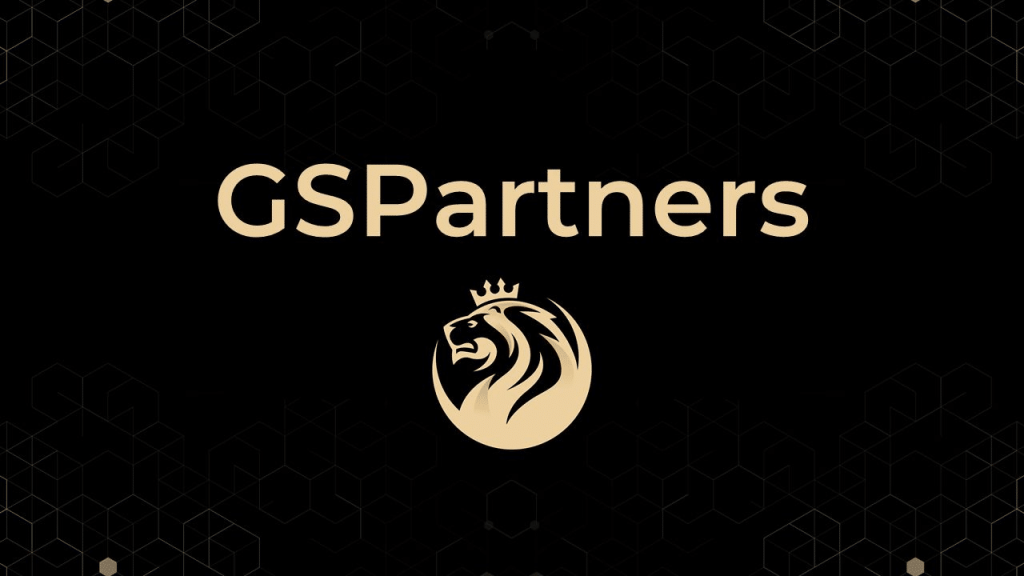In recent years, the cryptocurrency and blockchain industries have been plagued by a series of fraudulent schemes, many of which have been perpetrated by individuals or companies claiming to offer high-return investment opportunities. One of the most notable and controversial entities embroiled in such schemes is GSPartners, a firm associated with the G999 blockchain and its founder, Josip Heit. GSPartners’ rise and fall have raised alarm bells within the industry, with numerous accusations of securities violations, misleading investments, and involvement in deceptive multi-level marketing (MLM) structures.
The central allegation against GSPartners is that it has been running a Ponzi-like scheme, where new investor money is used to pay returns to earlier investors, rather than generating legitimate profits from real business activities. The company’s marketing tactics, its token offerings, and its relationship with blockchain technologies have all come under scrutiny, especially as regulators from around the world have raised concerns about its business practices.
This article provides a comprehensive analysis of GSPartners, examining its rise, the fraudulent schemes it allegedly operated, the legal actions taken against it, and the broader implications of this case for the cryptocurrency investment landscape.

Background of GSPartners and Josip Heit
GSPartners, also known as GSPartners Group, is a company that touts itself as offering cutting-edge blockchain technology and cryptocurrency investments. At its core, the company promoted the G999 token, a cryptocurrency that allegedly tied into real estate projects and blockchain-based financial services. The firm positioned itself as a bridge between digital currency investments and real estate, using blockchain to tokenize physical assets and generate returns for investors.
Josip Heit, the founder of GSPartners, is a controversial figure in the world of cryptocurrency and multi-level marketing. Prior to GSPartners, Heit was involved in a similar venture called Karatbars International, which faced its own set of legal challenges, with accusations of operating as a pyramid scheme. Karatbars marketed itself as a gold-backed cryptocurrency investment platform but was widely criticized for its lack of transparency and business practices that resembled those of a Ponzi scheme.
Heit’s involvement in these high-risk, often controversial ventures has made him a figure of suspicion among regulators. His history in MLM and network-based schemes has led many to question the legitimacy of his new ventures. Despite his past, Heit has managed to attract a significant number of investors, many of whom were lured by the promises of high returns and the potential for financial gain through digital currencies.

Allegations of Fraud and Securities Violations
The most serious allegations against GSPartners stem from claims of securities fraud and deceptive investment practices. Several state regulators have taken legal action against the company, accusing it of operating in violation of securities laws. For instance, in 2023, the Texas State Securities Board issued a cease-and-desist order against GSPartners, accusing the company of offering unregistered securities. The board argued that GSPartners had been promoting the G999 token without proper disclosures about the risks associated with such an investment.
Alabama’s securities regulator also followed suit, accusing GSPartners of running a fraudulent operation by marketing the G999 token to investors without proper regulatory filings or legal transparency. Both states emphasized that the company had failed to disclose critical information about its business operations and the inherent risks associated with investing in its products.
GSPartners was accused of engaging in what many experts refer to as a “pump and dump” scheme, where the value of the G999 token was artificially inflated to lure new investors, only for early investors to receive payouts by using the funds contributed by later investors. This tactic is typical of Ponzi schemes, where the emphasis is on recruitment rather than legitimate investment opportunities.
In addition to the accusations from Texas and Alabama, other states such as California, Kentucky, and even countries like Germany and Canada have expressed concerns regarding GSPartners’ practices. Several financial watchdogs, including the British Columbia Securities Commission (BCSC), issued warnings about the firm’s non-compliance with securities regulations. The growing list of complaints and cease-and-desist orders reflects the increasing attention that regulators are giving to the crypto space, especially as cases like GSPartners highlight the vulnerabilities within this largely unregulated market.

The Role of Multi-Level Marketing (MLM) Structures in Crypto Fraud
One of the key elements that differentiates GSPartners from other cryptocurrency firms is its use of a multi-level marketing (MLM) structure. MLM, also known as network marketing or referral marketing, is a business model that rewards participants for recruiting new members into the system. In the case of GSPartners, investors were encouraged to recruit others into purchasing G999 tokens, with the promise of earning commissions based on the amount of investment made by new recruits.
While MLM itself is not illegal, it becomes problematic when it is used in a deceptive manner or as part of a pyramid scheme, which is illegal in most jurisdictions. In GSPartners’ case, the MLM structure seemed to prioritize the recruitment of new investors over actual business activity, which is a hallmark of fraudulent schemes. According to several reports, investors were often told that their returns would come from the appreciation in the value of G999 tokens and other cryptocurrency assets, but the lack of tangible business operations or investments in real projects made these claims dubious at best.
Moreover, many investors were led to believe that they were part of a cutting-edge investment platform, which was supposedly offering real estate-backed crypto assets. However, the lack of transparency and verifiable details about how these assets were managed or how the platform generated profits only deepened suspicions of fraudulent intent. The primary source of revenue for participants was not the growth of their investments, but the continuous recruitment of new investors to sustain the payouts. This is a characteristic feature of Ponzi schemes, which rely on new money to pay returns to earlier investors, rather than on legitimate business operations or investment returns.
The G999 Token: A Closer Look at the Alleged Fraud
At the heart of GSPartners’ operations is the G999 token, which the company claims is a revolutionary blockchain asset linked to real estate and other tangible assets. The token was marketed as a high-return investment, supposedly tied to a blockchain ecosystem that would allow for secure and transparent real estate transactions. However, as investigations have shown, the G999 token lacked any real backing or liquidity, making it virtually worthless as a tradeable asset.
Critics argue that the token was little more than a promotional tool designed to attract investments and funds. The company’s marketing materials suggested that G999 could be used for various purposes within the real estate sector, but there was little to no evidence to substantiate these claims. Furthermore, investors were often pressured to purchase tokens without understanding the risks involved, as the company used high-pressure sales tactics to close deals.
The G999 token’s lack of transparency and accountability was compounded by the company’s promotion of it as part of a broader blockchain ecosystem, which included investments in virtual real estate within the metaverse. These so-called “metaverse schemes” were marketed as futuristic investments that would yield massive returns as the virtual world expanded. However, like the G999 token itself, these investments lacked tangible value or proof of any legitimate business activities in the metaverse.

The Global Response: Regulators Step In
As allegations against GSPartners grew, financial regulators worldwide began taking action. The British Columbia Securities Commission (BCSC) issued a warning about the firm’s illegal activities in Canada, stressing the importance of protecting consumers from fraudulent schemes. The German financial watchdog, BaFin, also issued alerts about GSPartners, citing concerns over the lack of proper registration and the failure to disclose key details about the firm’s operations.
The international response has underscored the importance of regulatory oversight in the crypto industry, especially as scams and frauds become more prevalent in the sector. While some jurisdictions have been more proactive in cracking down on fraudulent crypto schemes, others have been slower to adopt comprehensive regulations. As a result, many scammers are able to operate with relative impunity, preying on the enthusiasm of uneducated investors looking to capitalize on the promise of high returns.
The rise of such cases has prompted calls for greater global cooperation between financial regulators. Many experts argue that the decentralized nature of cryptocurrencies and the cross-border nature of online fraud require a more unified approach to regulation. Without stronger international frameworks, investors remain vulnerable to exploitation by rogue companies like GSPartners.
Impact on Investors: A Cautionary Tale
The most significant consequence of the GSPartners case is the impact on investors who were lured into the scheme. Many individuals invested substantial amounts of money into the G999 token and other cryptocurrency offerings, only to see their investments disappear or lose all value. These investors were promised high returns based on false claims, and now they are left with little recourse to recover their losses.
For many, the case serves as a stark reminder of the risks involved in cryptocurrency investments. While the crypto space offers vast potential for innovation and growth, it also attracts bad actors who prey on the excitement and inexperience of new investors. The absence of adequate regulation in the crypto market has allowed schemes like GSPartners to flourish, exploiting gaps in oversight and capitalizing on the lack of investor protections.
Conclusion: A Wake-Up Call for Crypto Investors and Regulators
The GSPartners case represents a critical moment in the ongoing battle to protect consumers from fraudulent activities in the cryptocurrency and blockchain sectors. It underscores the importance of due diligence, transparency, and regulatory oversight when investing in emerging technologies. Investors must be cautious of high-return promises, particularly when they come from unverified sources with questionable business models.
For regulators, the GSPartners case is a reminder that the rapid expansion of the crypto market requires vigilant oversight and stronger enforcement of securities laws. As the digital currency landscape continues to evolve, it is crucial for authorities to stay ahead of fraudulent schemes and ensure that investors are protected from exploitation.
In the end, the lessons learned from GSPartners’ rise and fall should serve as a warning to both investors and regulators. With the right safeguards in place, the potential for blockchain and cryptocurrency technologies can be realized without falling prey to fraud and manipulation.







